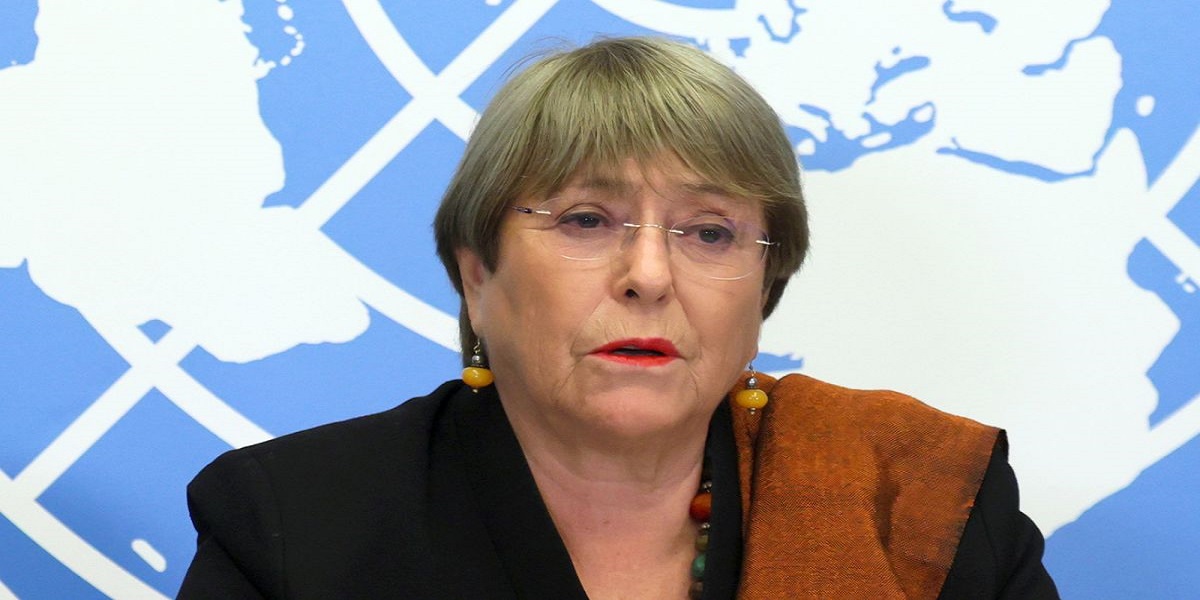- UN official: Mariupol has been one of the bloodiest chapters.
- Michelle Bachelet says 1,348 civilian deaths, including 70 children, verified.
- Russia declared victory in May in its months-long operation to capture Mariupol.
The scale of death and destruction in Mariupol, Ukraine’s port city, shows severe international law crimes, according to the UN’s human rights chief, who warned that the horrors will be remembered by future generations.
Speaking before the UN Human Rights Council in Geneva, Michelle Bachelet painted a grim picture of one of the bloodiest chapters so far in Russia’s war in Ukraine.
“Between February and the end of April, Mariupol was likely the deadliest place in Ukraine,” she said, in an update on the situation in the strategic port city, now held by Moscow.
Read more: On ‘Liberation Day,’ a former Ukrainian prime minister laments Mariupol’s destruction
“The intensity and extent of hostilities, destruction and death and injury strongly suggest that serious violations of international… law have occurred,” she said.
Russia declared victory in May in its months-long operation to capture Mariupol, after Ukraine ordered the last of its troops holed up in the city’s steelworks to lay down their arms.
The three months of battles sent hundreds of thousands of people running for their lives and caused untold suffering and death.
Bachelet said her staff, who did not have access to Mariupol, had verified 1,348 civilian deaths in the city, including 70 children.
She acknowledged though that “the actual death toll of hostilities on civilians is likely thousands higher.”
Ukrainian government representative Tetiana Lomakina meanwhile maintained that “at least” 22,000 people had been killed during the siege.
Another 47,000 have been “forcefully transferred” to Russia or other occupied territories, she said via video message.
Moscow’s offensive on Mariupol has drawn multiple accusations of war crimes, including over attacks on a maternity ward and a theatre, where hundreds of mainly women and children were sheltering.
The UN rights office assesses that up to 90 percent of residential buildings in Mariupol had been damaged or destroyed and an estimated 350,000 people were forced to leave the city.
Russian ambassador Gennady Gatilov argued there was no need to focus on Mariupol.
“The city of Mariupol has been fully liberated,” he told the council, insisting that “peace is returning… We see no point in the meeting today.”
Bachelet however insisted that the current situation in Mariupol remained “dire”.
While the shelling has now faded, she warned that residents left behind are “struggling daily with limited access to basic utilities and social services, such as medical care.”
She voiced particular concern over how a “so-called filtration process of civilians was and is being carried out”, reportedly involving intimidation and humiliation.
Read more: The mayor of Mariupol describes the city’s dire situation
And she warned of possible abuse of some of the more than 2,000 Ukrainian troops from Mariupol now held as prisoners of war.
Death sentences handed down to three foreign-national fighters “may amount to a war crime”, she said.
The UN rights chief warned that “the horrors inflicted on the civilian population will leave their indelible mark, including on generations to come.”
“On the parents who had to bury their own children, on people who witnessed their friends commit suicide, on families ripped apart, on all those who had to leave a much-loved city with uncertain prospects of ever seeing it again.”





















